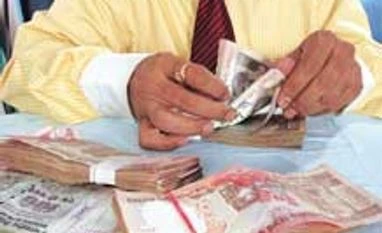Imagine this: You go to a bank branch with a cheque and the teller asks: Why do you want the money? Can you give us documentary evidence that this is required for a particular reason? Then, the teller refuses to give you the entire sum because he is not satisfied with the reply. Before you rub your eyes in disbelief, consider this: The BBC reported on Saturday that some customers of HSBC in the UK had to go through this experience.
While the bank apologised later, saying it wasn’t mandatory for customers to provide documentary evidence for large cash withdrawals and it was doing so to protect customers, this did not wash.
So, do banks in India have the right to stop you from withdrawing money from your account or seek documentary evidence or put a limit on withdrawals? While there are limits of Rs 10,000-20,000 on daily debit card withdrawals, most feel it is neither possible or fair to do so when the customer goes to a bank branch.
Another executive at a leading public sector bank says a bank is merely a custodian of an individual’s money and under a contractual agreement to repay. Under the Reserve Bank’s MITC (Most Important Terms and Conditions) guidelines, banks are responsible for returning the amount with them (with necessary charges, if the account is being closed). Even in the case of fixed deposits, if there is a premature withdrawal, banks normally charge a penalty.
Yes, sometimes smaller co-operative banks might not have a very large amount handy. But, in such cases, the bank should tell customers they’d need a day’s notice for withdrawals above a certain amount, say Rs 5 lakh.
If faced with such a problem, one should first approach the bank’s internal grievance department and then the banking ombudsman. If the solution is not coming, approach the Union government’s department of financial services’ grievance redressal mechanism.
Ashvin Parekh, partner, Ernst and Young, makes an important observation: “To protect the interest of deposit holders, most markets worldwide now require banking companies to form subsidiary companies in those markets. The Reserve Bank of India has also issued guidelines with that objective. It is now important that all foreign banks, which are systemically important to the market, adopt these reforms. The regulator should also pursue their reforms, perhaps more rigorously.”
Forming a subsidiary would ensure the bank’s assets and liabilities are frozen in the country, thereby protecting Indian customers from any external shock.
While the bank apologised later, saying it wasn’t mandatory for customers to provide documentary evidence for large cash withdrawals and it was doing so to protect customers, this did not wash.
So, do banks in India have the right to stop you from withdrawing money from your account or seek documentary evidence or put a limit on withdrawals? While there are limits of Rs 10,000-20,000 on daily debit card withdrawals, most feel it is neither possible or fair to do so when the customer goes to a bank branch.
More From This Section
Says consumer lawyer Jehangir Gai, “This can lead to unnecessary problems.” As Gai points out, if a lump sum is required for hospitalisation and the bank wants documentary proof to release money, this could lead to serious repercussiond if the person dies and the bank would be liable for compensation.
Another executive at a leading public sector bank says a bank is merely a custodian of an individual’s money and under a contractual agreement to repay. Under the Reserve Bank’s MITC (Most Important Terms and Conditions) guidelines, banks are responsible for returning the amount with them (with necessary charges, if the account is being closed). Even in the case of fixed deposits, if there is a premature withdrawal, banks normally charge a penalty.
Yes, sometimes smaller co-operative banks might not have a very large amount handy. But, in such cases, the bank should tell customers they’d need a day’s notice for withdrawals above a certain amount, say Rs 5 lakh.
If faced with such a problem, one should first approach the bank’s internal grievance department and then the banking ombudsman. If the solution is not coming, approach the Union government’s department of financial services’ grievance redressal mechanism.
Ashvin Parekh, partner, Ernst and Young, makes an important observation: “To protect the interest of deposit holders, most markets worldwide now require banking companies to form subsidiary companies in those markets. The Reserve Bank of India has also issued guidelines with that objective. It is now important that all foreign banks, which are systemically important to the market, adopt these reforms. The regulator should also pursue their reforms, perhaps more rigorously.”
Forming a subsidiary would ensure the bank’s assets and liabilities are frozen in the country, thereby protecting Indian customers from any external shock.
)